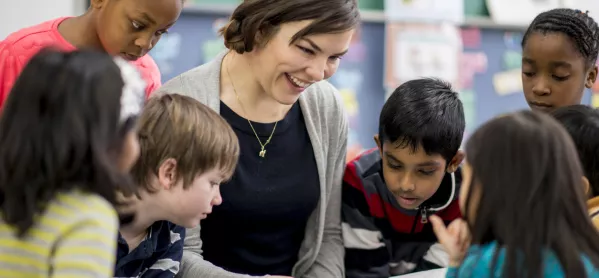Primary school children can make an additional two months’ progress in reading when they receive targeted interventions in small groups, a new study has found.
The study, published by educational research charity the Education Endowment Fund (EEF), found that a targeted programme of support using explicit reading comprehension techniques helped Year 5 and Year 6 pupils who were struggling with reading to make two months’ worth of progress.
Related: Reading novels quickly brings weak readers up to speed
Ofsted: Primaries won’t get extra time on the three Rs
Comment: All teachers teach reading skills - so let’s do it well
But a second programme using the same techniques in a whole-class “universal” intervention with Year 4 pupils was found to have a limited impact.
Nearly 100 schools in the North of England took part in a trial of Reciprocal Reading, a programme developed by the education non-profit Fischer Family Trust Literacy, designed to improve the reading skills of older primary pupils.
One programme involved a whole-class intervention for pupils in Year 4, lasting for at least half an hour a week over two terms. The other programme was a targeted intervention in small groups of approximately six pupils in Years 5 and 6, who teachers had identified as struggling with their reading. This also lasted for at least 30 minutes per week over a 12-week period.
Researchers from Queen’s University Belfast, led by Dr Liam O’Hare, found that pupils who received the targeted intervention made an additional two months’ progress in both reading and reading comprehension compared with children who had not had this targeted support.
However, pupils who received the whole-class “universal” intervention made no more progress than pupils who had not accessed the programme, although there were signs of promise as a result of both the universal and targeted intervention for pupils eligible for free school meals.
Reciprocal Reading involves teaching strategies such as questioning, clarifying, summarising and predicting to improve pupils’ reading comprehension. Pupils are encouraged to take more responsibility in leading discussions about their reading throughout the programme.
For example, one group of pupils was confused by the phrase “violet wishes” when reading the poem The Magic Box by Kit Wright. Through questioning one another and trying to clarify its meaning, they were able to develop their understanding.
The EEF have said that the research shows that high-quality, targeted interventions can help schools to close the disadvantage gap.
In England, the latest data shows that 62 per cent of disadvantaged pupils reach the expected standard of reading when they leave primary school, compared with 73 per cent of pupils nationally.
Sir Kevan Collins, chief executive of the EEF, said ensuring pupils left key stage 2 with strong reading skills was vital as a basis for their success in later life.
“Making sure all pupils experience the joy of reading and leave primary school with good reading skills is crucial, not just for their academic success later in school, but for building rewarding careers and lives beyond school,” he said.
“Yet a disadvantaged child in England is still much more likely than their classmates from more advantaged homes to leave primary school without reaching the expected levels in reading.”
“So it is great that today’s findings give schools more evidence on the best ways to boost reading outcomes for their pupils.
“They add to a large body of evidence that shows the positive impact that small-group programmes can have for pupils struggling with literacy. Targeted interventions should be an important part of every school’s literacy strategy.”





